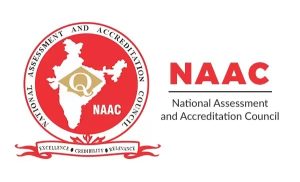NLUD-SOAS Joint LL.M./M.A. in Environmental Justice in South Asia Program
About the Course
National Law University Delhi, India is delighted to offer a Joint LLM/MA in Environmental Justice in South Asia in partnership with The School of Law, Gender & Media at SOAS University of London. This jointly taught and awarded one-year programme explores critical issues from a Global South-North perspective while also providing students with a rich learning opportunity to learn directly from field exposure. The course incorporates a core taught component, a clinical component and a dissertation.
Learning Experience
The programme will provide a unique and transformative learning experience, which graduates can bring to careers in research, policy studies and international non-governmental and governmental organisations. During the course, students will:
- have the opportunity to undertake a programme aimed at exploring issues of environmental justice through the lens of South Asia
- be jointly admitted to both institutions and have access to resources from both SOAS and NLUD throughout the programme
- travel to the UK and India as part of the programme, with the first term spent at SOAS on campus and the second term spent at NLUD on campus, followed by a dissertation
The programme has a single fee for all students regardless of country of origin. Upon completion of the programme, students will be jointly awarded a LLM/MA by both SOAS and NLUD.
Key Information
Duration: 1-year
Start of programme: September
Attendance mode: Full-time
Fees: £12,848
Please note that fees are subject to increases on a yearly basis. For this programme students will be required to pay the total programme fee by 31 October.
Course code: LLM PGTF0287 / MA PGTF0288
Entry requirements: Students will need to meet all the following entry requirements for either the LLM or the MA:
MA: For students applying from India and holding a BA/BSc/BCom from India, students need to have completed an integrated four-year degree programme to be eligible for the course. A 2:2 (or international equivalent) or higher in a relevant Social Sciences subject for students other than India.
LLM: A 2:2 LLB (or international equivalent). Students wishing to apply for the LLM Programme must have successfully completed an LLB. If you have a lower degree classification, your application may be considered if you can present a strong case, either through relevant work experience, other legal qualifications, or a strong supporting statement. References are not required but can help build a stronger application if you fall below the 2:2 requirement or have non-traditional qualifications.
See international entry requirements and English language requirements.
Admissions
Students will need to apply via SOAS only for this programme. For details on how to apply to SOAS, see SOAS’ How to apply pages.
International Mobility
This programme contains mandatory travel from the UK to India. To be able to undertake the programme, Students must successfully obtain a visitor visa for the UK prior to starting the programme and a student visa for India before the start of Term 2. Please ensure to check the visa requirements and your eligibility for a visa for both the UK and India before applying to this programme.
Neither NLUD nor SOAS can accept liability for failure of a student to obtain valid UK and Indian visas for the programme. Please see SOAS visas and immigration for more information on applying for a UK visitor visa and the NLUD Visa page and the Ministry of Home Affairs, India for an Indian student visa.
Course Overview
The LLM/MA Environmental Justice in South Asia is an innovative 1-year course located in the Global North and the Global South to explore critical environmental and climate change issues from the South-North perspective while also providing students a rich learning opportunity to engage and learn directly from field exposure.
It provides a unique and transformative learning experience, which graduates of the course can bring to careers in research, policy studies and international non-governmental and governmental organizations. The course incorporates a core taught component, a clinical component and a dissertation.
Structure
To be awarded the LLM/MA, students must take modules to a total value of 180 SOAS credits / 120 NLUD credits. This will include a mix of compulsory courses, electives courses and a dissertation. Please note that not all modules listed will be available every year.
Teaching and Learning
The language of instruction of the programme will be English.
Contact hours:
The Masters in Environmental Justice in South Asia consist of 180 SOAS credits/120 NLUD credits, made up of taught modules of 15/10 credits taught over one term, and a dissertation of 60/40 credits. The programme structure shows which modules are compulsory and which are optional electives.
At NLUD 1 credit equals approximately 15 hours of classroom teaching. It will also include class time, which may include lectures, seminars and other classes.
At SOAS, 1 credit equals approximately 10 hours of work. Most of this will be independent study, including reading and research, preparing coursework, revising for examinations and so on.
Knowledge and understanding
During this course students will:
- acquire specialist knowledge of environmental law related in particular to South Asia
- learn about the context in which environmental law is made, interpreted, adjudicated, and amended in a North-South perspective and focused on South Asia
- learn about the role and function of legal institutions in managing the environment and natural resources in South Asia
- develop knowledge of the weight and significance of different sources and methodologies and how to locate relevant materials and assess their relevance and/or importance
Learning outcomes
During this course students will:
- develop rigour in analysis and assessment of legal arguments
- develop the ability to understand, summarise and critically assess differing perspectives on theoretical debates
- be encouraged to bring to bear their own previous experience and knowledge in addressing legal issues in an interdisciplinary manner
- learn to identify issues and formulate questions for further research through independent work
- be able to apply the research methodology tools and skillsets in their dissertation and for future research work
Employment
Graduates of this programme will leave with a solid grounding in environmental law and justice as civic minded and critically engaged individuals who can effectively contribute to making their communities and societies more sustainable.
They will have a thorough understanding of the legal dimensions underlying the environment and will be valued by employers due to their analytical skills, specialist knowledge, and a regional South Asian and global perspective.
FAQ’s
What is unique about this degree?
The LLM/MA Environmental Justice in South Asia is an innovative 1-year course located in the Global North and the Global South to explore critical environmental and climate change issues from the South-North perspective while also providing students a rich learning opportunity to engage and learn directly from field exposure.
It provides a unique and transformative learning experience, which graduates of the course can bring to careers in research, policy studies and international non-governmental and governmental organizations. The course incorporates a core taught component, a clinical component and a dissertation.
During the course, students will:
- have the opportunity to undertake a programme aimed at exploring issues of environmental justice through the lens of South Asia;
- be jointly admitted to both institutions and have access to resources from both SOAS and NLUD throughout the programme;
- travel to the UK and India as part of the programme, with the first term spent at SOAS on campus and the second term spent at NLUD on campus, followed by a dissertation.
Why study the LLM/MA in Environmental Justice in South Asia?
The programme provides a unique specialisation in one of the most rapidly developing areas of law with special reference to South Asia. It offers students an option to study environmental law and its application and relevance to a broad range of areas with special reference to South Asia. The programme provides an opportunity to students to and apply learn tools of research methodology unique to environmental law along with an exposure to the field through a clinical component.
The course aims to build the student potential for growth both personally and professionally and it provides a route to further study through a PhD. On course completion, students will be equipped with research skills, exposure to the global South and North, while obtaining the necessary skills for career progression.
What degree do I get?
Upon completion of the programme, students will be jointly awarded a LLM/MA by both SOAS and NLUD.
What is the structure of the degree?
To be awarded the LLM/MA, students must take modules to a total value of 180 SOAS credits / 120 NLUD credits. This will include a mix of compulsory courses, electives courses and a dissertation. Please note that not all modules listed will be available every year.
The programme structure shows which modules are compulsory and which are optional electives.
What courses will I have to study?
In SOAS (September to January), you will take three compulsory modules (each worth 15 SOAS credits /10 NLUD credits):
- Foundations of Environmental Justice with reference to South Asia (15PLAH094)
- International environmental law and policy with reference to South Asia (15PLAH095)
- Research Methods (15PECC040)
AND one of the guided optional modules below delivered by SOAS (worth 15 SOAS credits /10 NLUD credits):
- Alternatives to Sustainable Development: Rights of Nature and Harmony with Nature (PLAH076)
- Civil society, social movements and the development process (15PDSH001)
- Law and the biodiversity crisis (PLAH074)
- Water Justice: Rights, Access and Movements (PLAH044)
At NLUD (February to June), you will take the following four compulsory modules delivered by NLUD (each 10 NLUD credits /15 SOAS credits):
- Environmental Law and Policy in India (15PLAH093)
- Natural Resources Law and Policy in South Asia (15PLAH096)
- Quantitative Research Methods & Environmental Justice Clinic (15PLAH097)
- Climate Justice and Climate Law: South-North Perspectives (15PLAH092).
The final part of the course is a 12,000 word dissertation (worth 60 SOAS credits/40 NLUD credits) on a topic related to environmental justice. The module can be undertaken at SOAS or NLUD or remotely
Why SOAS?
SOAS is ranked in the UK top 20 (QS World University Rankings 2023).
We are ranked 6th in the UK for employment outcomes (QS World University Rankings 2023).
Our research publications have been rated first in the UK – and our School of Law rated sixth in the UK – in the Research Excellence Framework (REF) 2021.
Why NLUD?
National Law University Delhi is ranked 2nd in the Law Category, in the 2023 National Institutional Ranking Framework (NIRF) Rankings.
Established in 2008, NLUD has become one of the leading institutions of legal education and impact-driven research in India.
It is accredited with CGPA of 3.10 on four point scale at ‘A’ grade valid up to April 2028, awarded by the National Assessment and Accreditation Council (NAAC).
Do I get to study in both Delhi and London?
This programme contains mandatory stay in the UK and in India. To be able to undertake the programme, students must successfully obtain a visitor visa for the UK prior to starting the programme and a student visa for India before the start of teaching in Delhi in February. Please ensure to check the visa requirements and your eligibility for a visa for both the UK and India before applying to this programme. Neither SOAS nor NLUD can accept liability for failure of a student to obtain valid UK and Indian visas for the programme.
Please see SOAS visas and immigration for more information on applying for a UK visitor visa and the NLUD Visa page and the Ministry of Home Affairs, India for an Indian student visa.
How long do I have to spend in the UK and India?
You will be in London from September to January and in Delhi from February to June. You can spend the rest of the time devoted to drafting your dissertation in the country of your choice.
When does the programme start and how long does it last?
The starting point is in September and the programme lasts 12 months
Is the joint degree offered in person or online?
The joint degree is offered in a combination of in-person and online courses. You will spend one term in person in London at SOAS, one term in person in Delhi at NLUD and you will take an online summer school on climate justice.
What are the employment opportunities that I will be able to avail after completing this course?
Graduates of this programme will leave with a solid grounding in environmental law and justice as civic minded and critically engaged individuals who can effectively contribute to making their communities and societies more sustainable.
They will have a thorough understanding of the legal dimensions underlying the environment and will be valued by employers due to their analytical skills, specialist knowledge, and a regional South Asian and global perspective.
What are the entry requirements?
Students will need to meet all the following entry requirements:
For the MA: A 2:2 (or international equivalent) or higher in a relevant Social Sciences subject for students other than India. For students applying from India and holding a BA/BSc/BCom from India, students need to have completed an integrated four-year degree programme to be eligible for the course.
For the LLM: A 2:2 LLB (or international equivalent). Students wishing to apply for the LLM Programme must have successfully completed an LLB. If you have a lower degree classification, your application may be considered if you can present a strong case, either through relevant work experience, other legal qualifications, or a strong supporting statement. References are not required but can help build a stronger application if you fall below the 2:2 requirement or have non-traditional qualifications.
Where can I find further information?
You can find further information either on the SOAS page devoted to the joint degree on this link or on the NLUD page devoted to the joint degree on this link.
How do I apply for this degree?
All students need to apply via SOAS only for this programme. For details on how to apply to SOAS, see our How to apply pages. In addition, Please see our international entry requirements and English language requirements for further details.
Who can I contact for futher information?
You can contact Prof. Roopa Madhav at NLUD at [email protected] or Prof. Philippe Cullet at SOAS at [email protected].
Why study the LLM/MA in Environmental Justice in South Asia?
The programme provides a unique specialisation in one of the most rapidly developing areas of law with special reference to South Asia. It offers students an option to study environmental law and its application and relevance to a broad range of areas with special reference to South Asia. The programme provides an opportunity to students to and apply learn tools of research methodology unique to environmental law along with an exposure to the field through a clinical component.
The course aims to build the student potential for growth both personally and professionally and it provides a route to further study through a PhD. On course completion, students will be equipped with research skills, exposure to the global South and North, while obtaining the necessary skills for career progression.
Why NLUD?
National Law University Delhi is ranked 2nd in the Law Category, in the 2023 National Institutional Ranking Framework (NIRF) Rankings.
Established in 2008, NLUD has become one of the leading institutions of legal education and impact-driven research in India.
It is accredited with CGPA of 3.10 on four point scale at ‘A’ grade valid up to April 2028, awarded by the National Assessment and Accreditation Council (NAAC).
Why SOAS?
SOAS is ranked in the UK top 20 (QS World University Rankings 2023).
We are ranked 6th in the UK for employment outcomes (QS World University Rankings 2023).
Our research publications have been rated first in the UK – and our School of Law rated sixth in the UK – in the Research Excellence Framework (REF) 2021.
Important Notice
The information on the website reflects the intended programme structure against the given academic session. The content and availability of optional modules may be subject to change. SOAS (September to January) Students take the following three compulsory modules delivered by SOAS (15 SOAS credits is equivalent to 10 NLUD credits).
SOAS (September to January)
Students take the following three compulsory modules delivered by SOAS (15 SOAS credits is equivalent to 10 NLUD credits):
Module Credits:
Foundations of Environmental Justice with reference to South Asia(15)
International environmental law and policy with reference to South Asia(15)
Research Methods(15)
AND one of the guided optional modules below delivered by SOAS (15 SOAS credits is equivalent to 10 NLUD credits):
Module Credits:
Water Justice: Rights, Access and Movements(15)
Civil society, social movements and the development process(15)
Biodiversity, Nature and Wildlife Law and Policy(15)
NLUD (February to June)
Students take the following four compulsory modules delivered by NLUD (10 NLUD credits is equivalent to 15 SOAS credits):
Module Credits:
Environmental Law and Policy in India(15)
Natural Resources Law and Policy in South Asia(15)
Quantitative Research Methods & Environmental Justice Clinic(15)
Climate Justice and Climate Law: South-North Perspectives(15)
Dissertation
Dissertation (12,000 words), on a topic related to environmental justice. The module can be undertaken at SOAS or NLUD or remotely (60 SOAS credits is equivalent to 40 NLUD credits):
Module Credits:
LLM Dissertation in Environmental Justice(15)
MA Dissertation in Environmental Justice(15)
For more Information:
Visit the SOAS website for more information about the Joint Masters.
For more info drop email to:
Professor (Dr.) Roopa Madhav
Professor of Law (Research)
National Law University Delhi
Email: [email protected]




